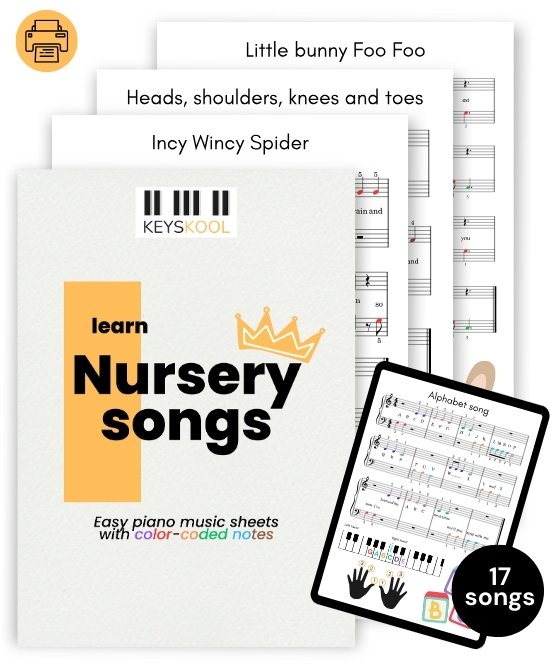Hey there! 🎹 Ever heard there’s an “ideal” age to start piano? Well, forget that! 🚫🤔
It’s never too late nor too early to dive into the joy of music. 🎶
Whether you’re 8 or 80, the piano welcomes everyone.
So, grab those keys, let the musical adventure begin and stop asking yourself what is the best age to start piano lesson 🎼
Breaking Myths about best age to start piano lesson
It is really easy to be impressed by all the social media videos of some 6 year old piano genius who plays the most complexe Mozart Sonatas. But reality is that you don’t need to be a genious or dedicated hours per day to start playing the piano. You just need motivation (not to be confused with passion), commitment and patience. If your desire to learn is real, you’ll find the time to devote to your practice.
For Toddlers: 🧒
Never too early! Toddlers can start their musical journey, exploring the wonders of piano play. It’s all about joy and exploration at this age. The key is: no pression. Piano can start like a game, or a good family moment. Little children can start by exploring the sound, the ascending of descending scales…
For Teens: 👩🎤
Teens, now’s the time!
Music can be the best companion for this period of life when you need support and self-expression. Let it become a hobby that brings joy, relaxation or energy amidst the hustle and bustle. Acknowledging every small achievements can become the best rewards every teen need.
For Adults: 🌟
Well, if you are here it means that you need just that little push to start your journey. Guess what? There’s no expiration date for starting piano! Whether you’re 20, 40, or 60, the piano welcomes learners of all ages. The path will not be the same with work, family and… life. But piano time is YOUR time. You take-care, love yourself, personal growth time. So hesitate no more!

Signs Your Toddler Is Ready for Piano Exploration 🎹
Watch for signs of interest: curiosity is the first melody of their musical journey. If your toddler enjoys musical stories or shows interest in musical instruments, introducing them to the piano can be a delightful experience.
Keen Interest in Sounds 🔍:If they love exploring sounds and show excitement when they hear music.
Finger Play and Coordination 👆: Observe their finger movements during playtimes. If they enjoy activities that involve finger coordination, it’s a positive sign for piano readiness.
Expressive Movements and Rhythms 💃: Toddlers expressing themselves through movements and rhythms might be signaling their readiness to dance with piano keys.
Positive Response to Sound Exploration 🎵: Encourage their exploration of sounds. Not only piano, all instruments and sounds. If they respond positively and show curiosity about the music tones, it’s a step towards musical discovery.
Parent-Child Bonding 💞: Lastly, consider exploring piano together. If your toddler enjoys the shared experience, it could be a wonderful way to strengthen your parent-child bond.
Remember, there’s no rush! Allow your toddler to explore at their own pace, fostering a love for music and the piano. 👶

Printable piano nursery songs easy for beginners PDF
The easiest method to play your first nursery song on the piano with the color-codes notes and keys and fingering.
Read: A Research on the Design and Use of Colored Notes for Children in Music Education

Forget about best age to start piano lesson, set realistic expectations
Embracing the Start: 🎹Learning the piano is timeless, breaking free from age myths. It’s not about when you begin; it’s about embracing the joy of the journey.
Setting Realistic Expectations: 🚀Begin with realistic expectations; progress is a personal voyage. A nursery song, a easy pop song, a classical basic with the easy version? Understand that every small step is a victory. No need to rush your application to the next international piano competition for now 😊
Patience is Key: Learning the piano isn’t a race; it’s a beautiful exploration. ⏳Patience is your greatest ally in mastering the piano. Like a blooming melody, skills evolve with time. No need to start with 1 hour practice per day. Start with short sessions to avoid burning out from the start.
Read: Top 6 motivation reasons your adult piano students love to study piano – Topmusic.com
A beginner timeline
Embarking on a piano journey as an adult? 🎹 Don’t fret about time constraints! ⌛️
Again, patience is Key. Learning piano is a gradual process.
First Weeks:
In the initial weeks, focus on finger strength and basic notes. 🎵 Easy does it!
Months 1-3:
Explore simple tunes, understand key positions. Consistency is your ally. 🎹🌟
Months 3-6:
Dive deeper into chords, progress to more complex pieces. Celebrate small victories! 🏆
Beyond 6 Months:
As confidence grows, tackle your favorite compositions. Enjoy the musical journey! 🌈🎼
Ongoing Learning:
Continue honing your skills, savor the process. There’s no rush; it’s your musical tale. 📘🎵
Remember, there’s no clock ticking against you. Enjoy each note, and let your piano practice unfold naturally. 🌟🎹
Tips to stay motivated: the secret weapon of Community
Finding Motivation in Community
Learning alone can be tough, right? Joining a community adds a sprinkle of motivation. 🤝💡 Share your progress, exchange tips, and feel the support of fellow learners. It makes the piano adventure even more exciting! 🎉
Social Media for Musical Connections
In this digital age, social media is your ally. Connect with piano enthusiasts, discover inspiring stories, and share your own. 📱💬 It’s a fantastic way to stay motivated and engaged on your piano learning path. 🌐✨
Create your social account and tell your story.
Believe me, people will come, I’ve been there. No need beautiful video or even showing your face. All you need is to start.
Or ask a local music teacher to meet piano adult student beginners like you. You will be amazed by the human experience!
Embrace the Musical Community
So, whether you’re a curious beginner or picking up where you left off, remember – the piano is for everyone. Join the community, find your rhythm, and let the music unfold. 🌈🎵
